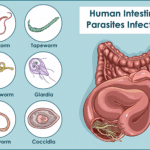The Freezing Truth: Are Frozen Fruits and Veggies More Nutritious?

You often hear “eat seasonally” yet every day of the year my local supermarkets sell blueberries, apples, melons, tomatoes, potatoes and sometimes even citrus fruits. Modern advances have allowed for fruits and vegetables to be stored longer and travel longer distances. Retail stores rarely sell locally grown fruits and vegetables. My questions: are frozen fruits and vegetables more nutritious than produce shipped from out of the country. This article aims to compare the nutritional content of fresh and frozen vegetables, considering factors such as transportation and the freezing process.
1. Nutrient Retention in Frozen Vegetables
One of the primary advantages of frozen vegetables is their ability to retain nutrients. Studies have shown that freezing vegetables shortly after harvesting preserves their nutritional content more effectively than traditional preservation methods. The flash freezing process used in the production of frozen vegetables and fruits helps to lock in vitamins, minerals, and antioxidants, ensuring they are available for consumption even months after the initial harvest (Bhowmik et al., 2019). The quick freezing process prevents nutrient degradation, offering a convenient and nutritious alternative to fresh produce.
Now, before we continue, you may have had a negative response to reading ‘frozen vegetables.’ I think we all remember tiny stale tasting peas and carrots, or a frozen block of spinach that needed to be pried from its square paper container. Nowadays, this isn’t how many frozen vegetables appear in the package. The flash freezing process is now used to rapidly freeze the produce in single layers. The individually frozen pieces are then combined into bags for sale. Unless they have defrosted at some point, they will not return to a frozen frosty lump.
2. Nutrient Degradation in Fresh Vegetables during Transportation
Fresh vegetables undergo a journey from the farms to the consumers’ plates, often involving long-distance transportation and storage periods. During this process, they are susceptible to various factors that can lead to nutrient degradation. Exposure to heat, light, and oxygen are common culprits that accelerate the breakdown of essential nutrients such as vitamins C and B complex, as well as certain antioxidants (Rickman et al., 2007). As fresh vegetables age, their nutrient content diminishes, impacting their overall nutritional value by the time they reach the market.
3. Vitamin C Content
Vitamin C, an essential water-soluble antioxidant, is crucial for maintaining a robust immune system and overall health. Studies comparing frozen and fresh vegetables have consistently shown that freezing helps to preserve the vitamin C content in vegetables better than refrigeration or extended transportation (Gahler et al., 2003). Frozen vegetables can offer a more reliable source of vitamin C, especially during seasons when certain fresh vegetables are not readily available locally.
4. Phytochemical Preservation in Frozen Vegetables
Phytochemicals, including carotenoids, flavonoids, and polyphenols, are bioactive compounds found in plant-based foods that contribute to their health-promoting properties. Research has demonstrated that freezing vegetables at their peak ripeness helps to retain these beneficial phytochemicals, potentially providing consumers with higher levels of antioxidant and anti-inflammatory compounds compared to some fresh vegetables that might have experienced post-harvest nutrient losses (Vallejo et al., 2002).
5. Impact of Processing and Cooking
It is essential to consider that both frozen and fresh vegetables may undergo some nutrient losses during processing and cooking. However, the degree of nutrient loss during cooking can vary depending on the vegetable type, cooking method, and duration. Research has shown that while both frozen and fresh vegetables experience some nutrient degradation during cooking, the overall nutrient retention is higher in frozen vegetables due to their initial preservation state (Moorhead et al., 2015).
6. Environmental Considerations
The environmental impact of food production and transportation is an important aspect to consider in our dietary choices. Fresh vegetables often travel long distances from farms to retail outlets. On the other hand, frozen vegetables are typically processed and frozen near the farms shortly after harvest. Thus, choosing frozen vegetables can help reduce the overall environmental impact of our food choices.
Both frozen and fresh vegetables offer valuable nutrition to support a healthy lifestyle. However, the nutritional benefits of frozen vegetables are notable due to their preservation of vitamins, minerals, and phytochemicals through the flash freezing process. While fresh vegetables may provide excellent nutrition when consumed locally and promptly after harvest, the nutrient degradation during transportation can compromise their nutritional value. The choice between frozen and fresh vegetables ultimately depends on individual preferences and the availability of locally grown produce.
Personally, I love stocking my refrigerator with frozen fruits and vegetables. My family eats frozen fruit as dessert (blended) and adds both frozen fruits and vegetables to smoothies. When you add frozen vegetables to a smoothie, the flavor of the vegetable is greatly diminished (so, they can add more vegetables).
- Bhowmik D, Dubey J, Mehra S, et al. (2019). “Freezing technology: An emerging trend for preservation of fruits and vegetables.” Journal of Food Science and Technology, 56(12), 5481–5494.
- Rickman JC, Barrett DM, Bruhn CM. (2007). “Nutritional comparison of fresh, frozen, and canned fruits and vegetables. Part 1. Vitamins C and B and phenolic compounds.” Journal of the Science of Food and Agriculture, 87(6), 930-944.
- Gahler S, Otto K, Böhm V. (2003). “Alterations of vitamin C, total phenolics, and antioxidant capacity as affected by processing tomatoes to different products.” Journal of Agricultural and Food Chemistry, 51(25), 7962-7968.
- Vallejo F, Tomás-Barberán FA, García-Viguera C. (2002). “Phenolic compound contents in edible parts of broccoli inflorescences after domestic cooking.” Journal of the Science of Food and Agriculture, 82(7), 861-866.
- Moorhead K, Capozzi F, Lehmann R, et al. (2015). “Effect of freezing and storage on the flavonoids and phenolic acids of cooked spinach.” Food Chemistry, 180, 294-301.
- He X, Reindl KM, and Sims J. (2016). “Carbon footprints of food consumption by rural and urban residents in the United States.” Renewable Agriculture and Food Systems, 31(2), 154-165.
Enjoying this content? Sign up for updates... It's FREE!

















